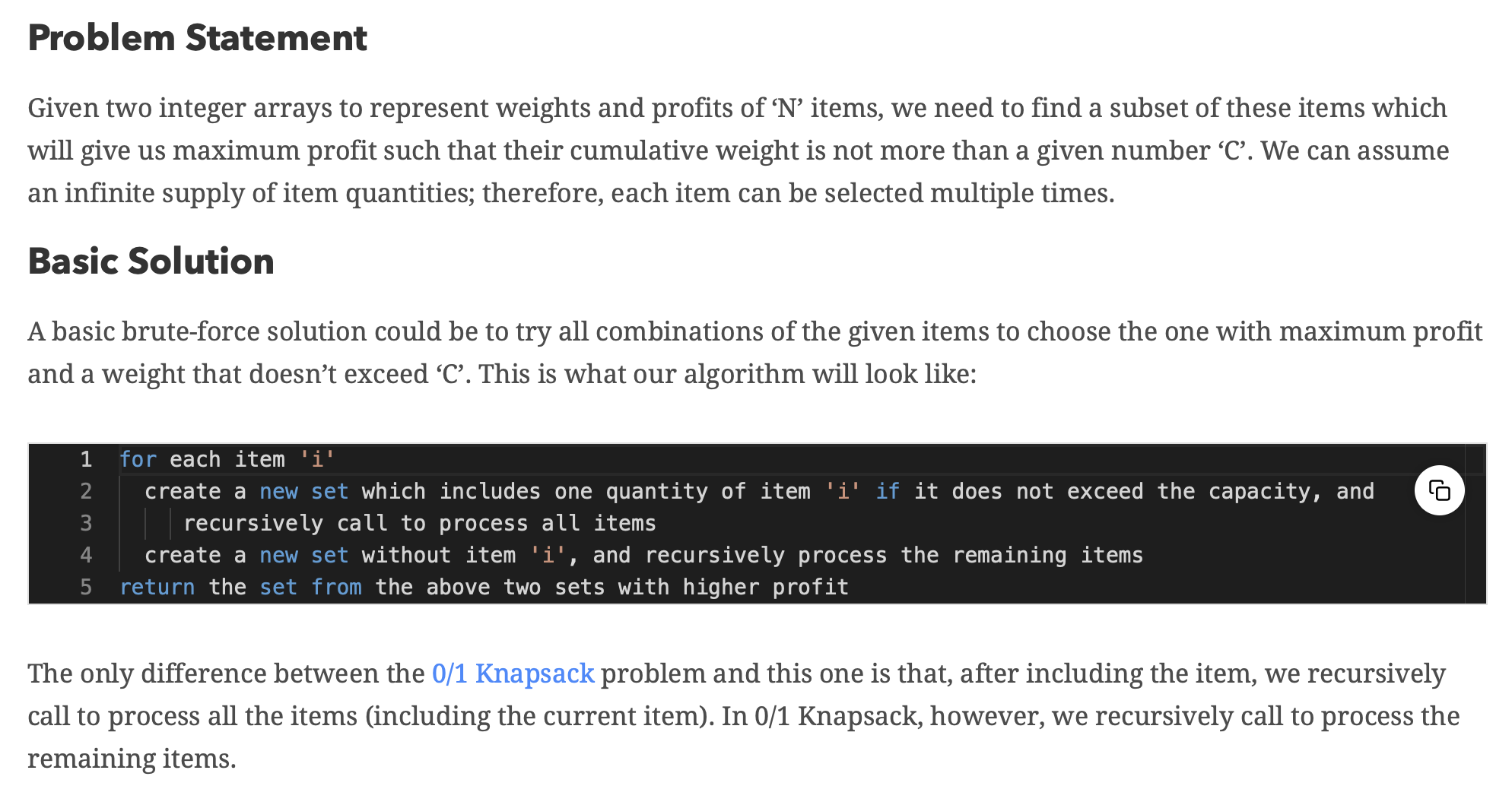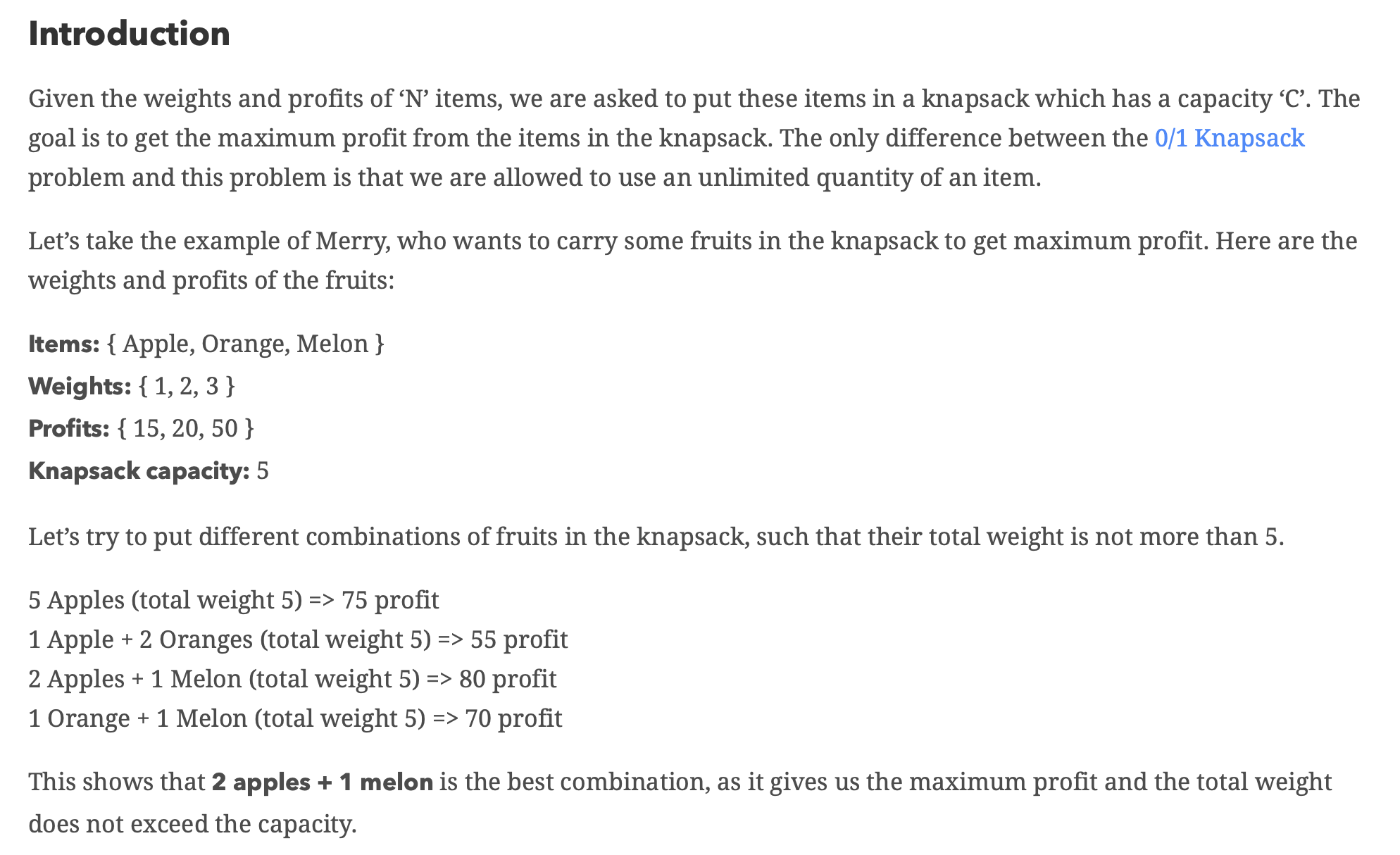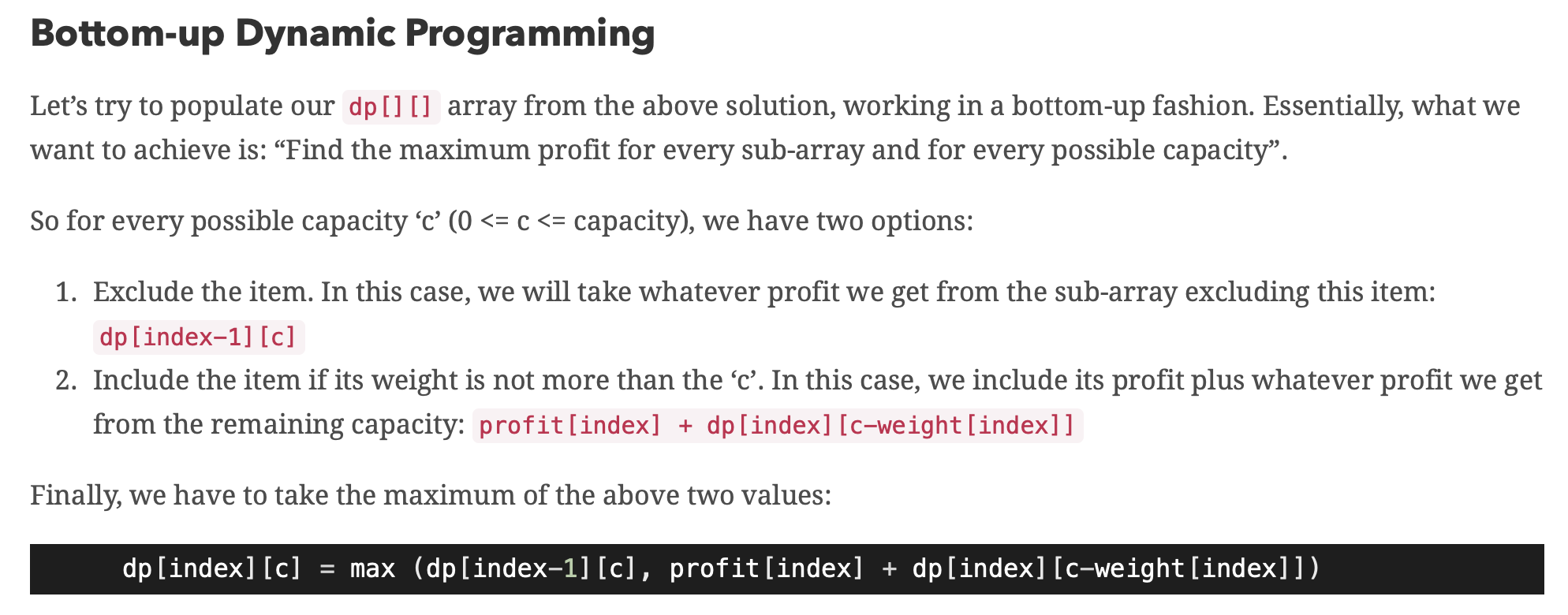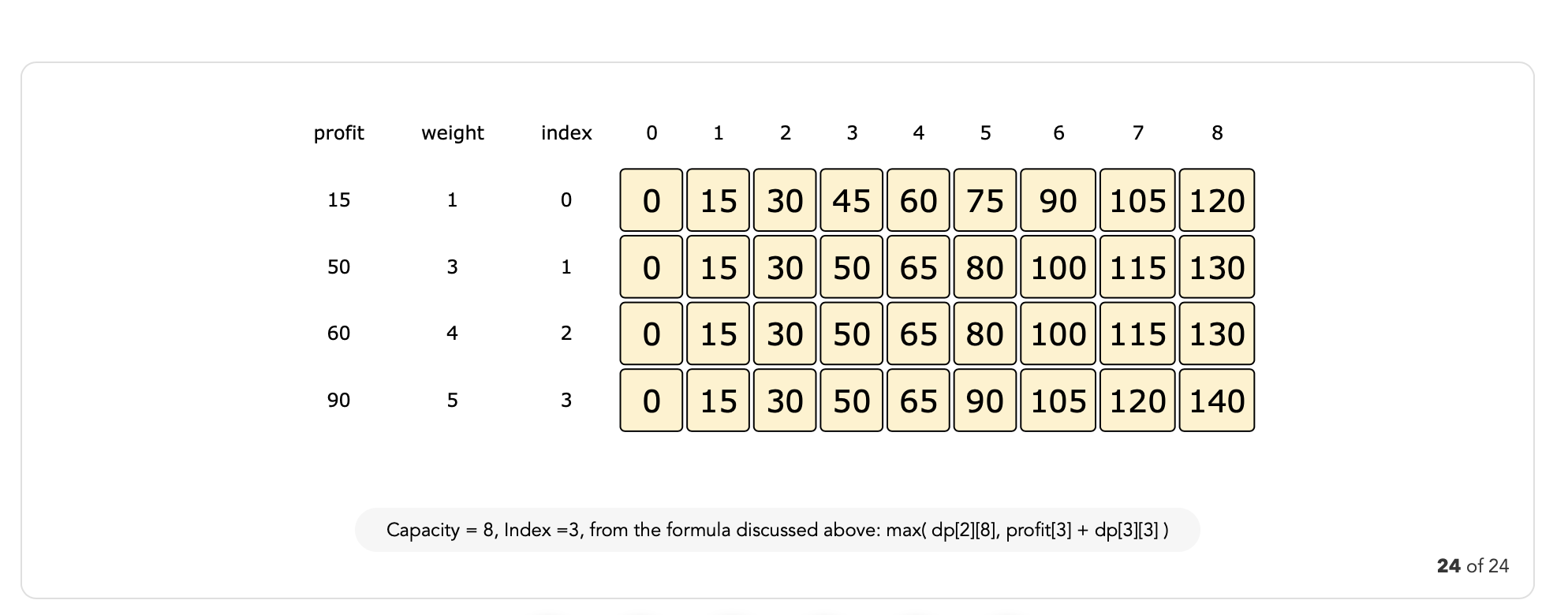Unbounded Knapsack
核心概念
跟 0/1 Knapsack 唯一不一樣的地方就只有 unbounded knapsack 每個 item 可以用無限次。
簡介
暴力解的程式碼如下:
using namespace std;
#include <iostream>
#include <vector>
class Knapsack {
public:
int solveKnapsack(const vector<int> &profits, const vector<int> &weights, int capacity) {
return this->knapsackRecursive(profits, weights, capacity, 0);
}
private:
int knapsackRecursive(const vector<int> &profits, const vector<int> &weights, int capacity,
int currentIndex) {
// base checks
if (capacity <= 0 || profits.empty() || weights.size() != profits.size() ||
currentIndex >= profits.size()) {
return 0;
}
// recursive call after choosing the items at the currentIndex, note that we recursive call on
// all items as we did not increment currentIndex
int profit1 = 0;
if (weights[currentIndex] <= capacity) {
profit1 = profits[currentIndex] +
knapsackRecursive(profits, weights, capacity - weights[currentIndex], currentIndex);
}
// recursive call after excluding the element at the currentIndex
int profit2 = knapsackRecursive(profits, weights, capacity, currentIndex + 1);
return max(profit1, profit2);
}
};
int main(int argc, char *argv[]) {
Knapsack *ks = new Knapsack();
vector<int> profits = {15, 50, 60, 90};
vector<int> weights = {1, 3, 4, 5};
cout << ks->solveKnapsack(profits, weights, 8) << endl;
cout << ks->solveKnapsack(profits, weights, 6) << endl;
delete ks;
}Memoization 的程式碼如下:
using namespace std;
#include <iostream>
#include <vector>
class Knapsack {
public:
int solveKnapsack(const vector<int> &profits, const vector<int> &weights, int capacity) {
vector<vector<int>> dp(profits.size(), vector<int>(capacity + 1));
return this->knapsackRecursive(dp, profits, weights, capacity, 0);
}
private:
int knapsackRecursive(vector<vector<int>> &dp, const vector<int> &profits,
const vector<int> &weights, int capacity, int currentIndex) {
// base checks
if (capacity <= 0 || profits.empty() || weights.size() != profits.size() ||
currentIndex >= profits.size()) {
return 0;
}
// check if we have not already processed a similar sub-problem
if (!dp[currentIndex][capacity]) {
// recursive call after choosing the items at the currentIndex, note that we
// recursive call on all items as we did not increment currentIndex
int profit1 = 0;
if (weights[currentIndex] <= capacity) {
profit1 =
profits[currentIndex] +
knapsackRecursive(dp, profits, weights, capacity - weights[currentIndex], currentIndex);
}
// recursive call after excluding the element at the currentIndex
int profit2 = knapsackRecursive(dp, profits, weights, capacity, currentIndex + 1);
dp[currentIndex][capacity] = max(profit1, profit2);
}
return dp[currentIndex][capacity];
}
};
int main(int argc, char *argv[]) {
Knapsack *ks = new Knapsack();
vector<int> profits = {15, 50, 60, 90};
vector<int> weights = {1, 3, 4, 5};
cout << ks->solveKnapsack(profits, weights, 8) << endl;
cout << ks->solveKnapsack(profits, weights, 6) << endl;
delete ks;
}DP 解法的程式碼如下:
using namespace std;
#include <iostream>
#include <vector>
class Knapsack {
public:
int solveKnapsack(const vector<int> &profits, const vector<int> &weights, int capacity) {
// base checks
if (capacity <= 0 || profits.empty() || weights.size() != profits.size()) {
return 0;
}
int n = profits.size();
vector<vector<int>> dp(n, vector<int>(capacity + 1));
// populate the capacity=0 columns
for (int i = 0; i < n; i++) {
dp[i][0] = 0;
}
// process all sub-arrays for all capacities
for (int i = 0; i < n; i++) {
for (int c = 1; c <= capacity; c++) {
int profit1 = 0, profit2 = 0;
if (weights[i] <= c) {
profit1 = profits[i] + dp[i][c - weights[i]];
}
if (i > 0) {
profit2 = dp[i - 1][c];
}
dp[i][c] = profit1 > profit2 ? profit1 : profit2;
}
}
// maximum profit will be in the bottom-right corner.
return dp[n - 1][capacity];
}
};
int main(int argc, char *argv[]) {
Knapsack *ks = new Knapsack();
vector<int> profits = {15, 50, 60, 90};
vector<int> weights = {1, 3, 4, 5};
cout << ks->solveKnapsack(profits, weights, 8) << endl;
cout << ks->solveKnapsack(profits, weights, 6) << endl;
delete ks;
}Last updated




